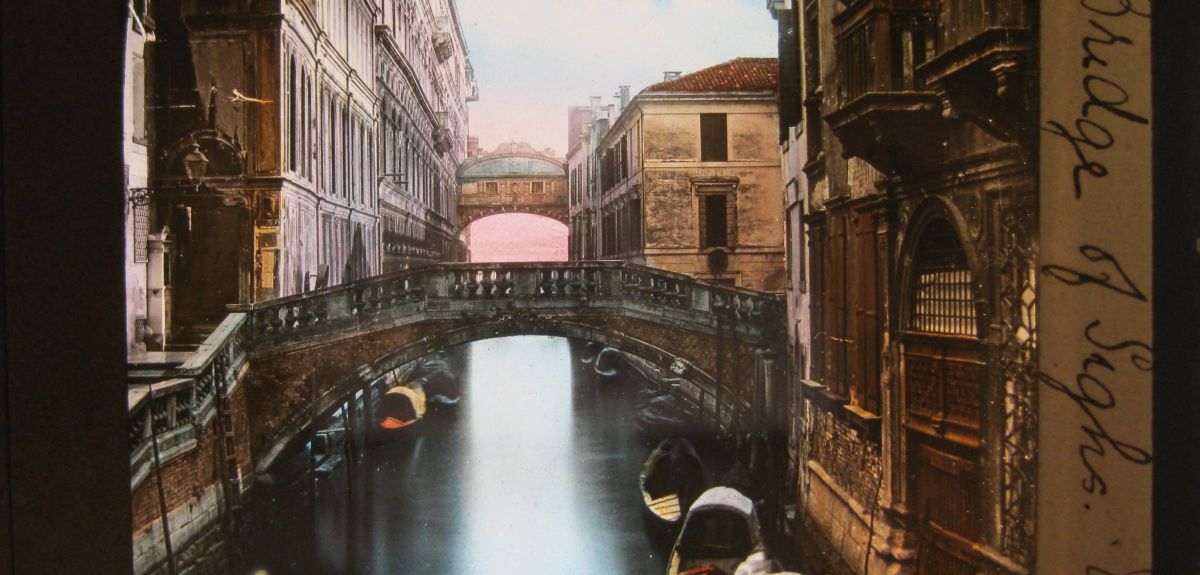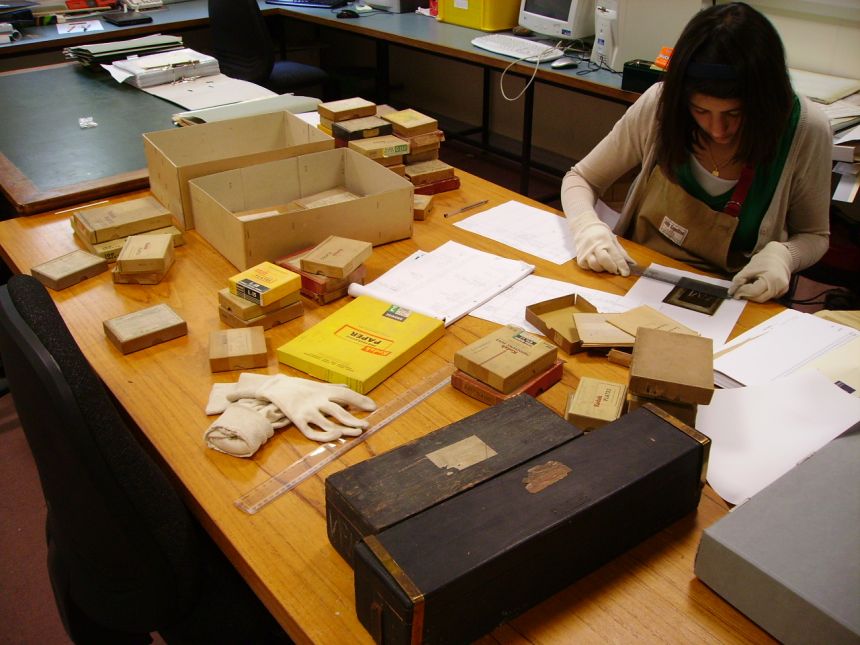
'The shock of the old': Oxford's Victorian lantern slides to go on show
Oxford University's unique collection of Victorian lantern slides will go on show to the public later this year as part of Being Human, the UK's first national festival of the humanities.
The Historic Environment Image Resource, based in the Institute of Archaeology within the University's School of Archaeology, has been awarded funding to host a series of events in November.
Making use of the University's vast collection of late 19th and early 20th-century teaching lantern slides, the events will include a week-long exhibition, a workshop, a citizen science 'tagathon' and an authentic Victorian lantern slide performance.
Known together as 'The shock of the old: glass plate negatives and photographs of late 19th-century England', the events have been made possible by a grant from the festival organisers and the School of Advanced Study, University of London, supported by the Arts and Humanities Research Council and the British Academy.
 HEIR volunteer Marissa helps sort some of the lantern slides.
HEIR volunteer Marissa helps sort some of the lantern slides.Although full details of the events are still to be confirmed, the free public exhibition will be held in a University museum and will feature life-size panels – startling in their detail – highlighting everyday life in Victorian times. The authentic Victorian lecture performance, based on an original 1880s travel series, will recreate a sense of the original excitement and wonder of pre-cinema lantern slide shows by taking the modern audience on a trip through the past, from London to Constantinople, with live musical accompaniment.
The citizen science project will take the form of a 'tagathon' in which volunteers around the world can help enhance the lantern slide resource by tagging the contents of images and using web resources to locate and identify mystery images. The workshop, meanwhile, will be hosted by The Oxford Research Centre in the Humanities (TORCH) and will bring together leading international academics and collaborators to explore ways of exploiting this innovative collection.
 An image of tourists in Istanbul from Oxford University's collection of Victorian lantern slides.
An image of tourists in Istanbul from Oxford University's collection of Victorian lantern slides.The Being Human festival programme will focus on activities that make humanities research accessible to the general public and demonstrate the role of the humanities in the cultural, intellectual, political and social life of the UK.
Thirty-six grants have been awarded to universities and arts and cultural organisations across the UK to participate in the nine days of festival events taking place across the UK from 15–23 November.